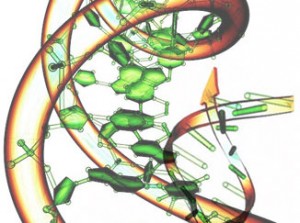
Customized Kidney Cancer Treatment, Tailor Made for Each Patient
-
The recent work of The Cancer Genome Atlas (TCGA) showing the underlying genetic changes for kidney cancer is groundbreaking, and it will lead to major progress in kidney cancer treatment (see related blog).

But another exciting new therapy is already available today, and it captures the goals of “personalized medicine”— aiming for a uniquely individual cancer treatment, which can be effective and at the same time, carry few to no side effects.
Metastatic kidney cancer is known to be an almost universally terminal diagnosis, with the average survival of patients often less than two years. Despite dramatic advances in the available treatment options over the last 10 years, with seven new drugs FDA approved for this since 2005 (where as the last kidney cancer drug approved prior to 2005 was for interleukin-2, in 1992), cures and long-term survivors of advanced kidney cancer are rare.
Importantly, kidney cancer is known as a unusual type of cancer having an odd but sometimes very favorable outcome, believed to result from a patient’s immune system getting activated: many confirmed cases of “spontaneous regression” have occurred, where patients having metastatic kidney cancer can subsequently and unpredictably have metastatic tumors regress and disappear following surgery and nephrectomy and without any other intervention; and interleukin-2, which does not directly treat kidney cancer but when given at high intensity (“high-dose IL-2 immunotherapy/cytokine therapy”) modifies and stimulates a patient’s immune system, and it can on occasion induce a similar complete treatment response and the kidney cancer goes into remission. Unfortunately, spontaneous kidney cancer regression is rare, and long-term success with high-dose IL-2 treatment is seen in only about five percent of patients, so improvements in helping patients with metastatic kidney cancer are clearly needed.
A new immunotherapy treatment for metastatic kidney cancer has recently become available, and the Fox Chase Cancer Center Genitourinary Cancer Team has a lead role in seeing this idea of personalized therapy become a reality. The ADAPT trial recently opened at Fox Chase, in addition to other sites nationally, and this treatment will harness the cancer fighting potential within a patient’s own immune system, hoping to lead to a significant extension of life for patients with metastatic kidney cancer. Importantly, the intervention is unique and customized for each patient, simply because it starts with a patient’s own immune cells, which are then conditioned and “adapted” to be markedly more reactive to fight off the patient’s kidney cancer once re-injected into the patient.
Results of the initial studies of this treatment show it can double the survival for patients with metastatic kidney cancer, compared to standard treatment with a targeted therapy medicine, such as sorafenib, sunitinib or pazopanib. The ADAPT protocol requires that patients have not had surgery or received any prior treatment, so that they are at the best point to initiate this therapy and hopefully see the greatest response.
This clinical trial is expected to be completed in 2014, and for additional information about this or any other study, or if you have interest in determining your eligibility, call 888-369-2427. Immunotherapy has already been shown to be an effective approach for other types of cancer, notably prostate cancer, and we believe this trial will confirm its role for advanced kidney cancer as well.
